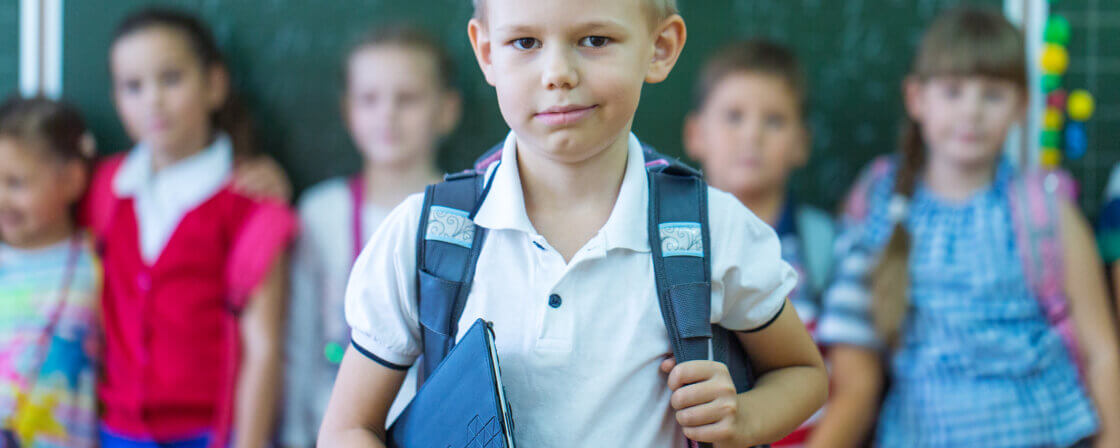What is inclusion and what is its meaning
Inclusion is a term that is often used but few people know exactly what it means. Simply put, it is an approach that recognises that every child is different and that these differences are not a barrier but a natural part of the school environment. Inclusivity means that the school does not exclude any child because of his or her differences, but instead looks for ways to adapt the learning and environment to his or her needs.
The importance of inclusion is that it promotes equality of opportunity and respect for diversity. The aim is not that all children should be the same, but that each child should be given the chance to fulfil his or her potential – to the best of his or her ability. This applies not only to children with disabilities, but also to the gifted, foreigners and pupils from disadvantaged backgrounds.
Parents often perceive inclusion as something that only affects “others”. But the truth is that inclusion benefits everyone – it teaches children empathy, cooperation and tolerance. And when done right, inclusion can benefit the whole classroom, not just the child with special needs.
Are you solving a similar problem?
Do you feel that the school does not respect your child's needs?
We can help you find out whether the school is behaving in accordance with the law and how to take effective action. Contact us to prepare a complaint, represent you in your dealings with the school and make sure your child has a truly level playing field in education.
I need help
- When you order, you know what you will get and how much it will cost.
- We handle everything online or in person at one of our 6 offices.
- We handle 8 out of 10 requests within 2 working days.
- We have specialists for every field of law.
Legal framework for inclusive education in the Czech Republic
In the Czech Republic, inclusive education is enshrined directly in law. The main piece of legislation is the Education Act, which states that every pupil has the right to education according to his or her needs. This principle is then elaborated in the Decree on the Education of Pupils with Special Educational Needs and Gifted Pupils, which sets out how schools should proceed in educating pupils with special educational needs.
This is based on so-called support measures, ranging from minor adjustments to teaching to a teaching assistant or an individual education plan. If a child needs help, the school must respond to recommendations from the educational-psychological counselling centre or special education centre. Parents have the right to be involved in this process and can influence the school’s decision.
The school has a duty to ensure a level playing field for all pupils. If it fails to do so, it is breaking the law. Inclusion is not just an option, but an obligation. And while we sometimes hear that ‘the school doesn’t have the conditions’, the responsibility lies with the system, not the child. So if you are a parent whose child is affected by inclusive education, then you should know that your child has the same rights as everyone else and that the state and the school are obliged to provide them.
What inclusive education looks like in practice
Ideally, inclusive education is a team effort involving the teacher, teaching assistant, school psychologist, parents and child. They all communicate with each other and look for ways to adapt the teaching to the individual needs of the pupil. For example, the child may have longer time for tests, a simpler formulation of assignments, use special aids or work in smaller groups. These are all common forms of inclusion today.
The attitude of teachers and classmates also plays a big role. Inclusion only works when there is a respectful and open atmosphere in the school. Children learn to accept differences – that someone reads more slowly, another finds it harder to concentrate, another has an assistant. Instead of ridicule, they learn to cooperate. Such inclusiveness develops social skills for all.
It is important for parents to be an active part of this process; they should communicate with teachers, attend meetings about the individual education plan, ask for feedback and not be afraid to speak up if something is not working. Inclusion is not a one-off decision, but a long-term process. And you, as a parent, can be the one to ensure your child’s school is truly fulfilling its role.
Tip for article
Tip: From 1 January 2026, all primary and secondary schools in the Czech Republic must provide menstrual supplies free of charge. What led the government to this regulation? Read more in our article.
What if the school does not comply with inclusion?
Unfortunately, it happens all the time that schools do not follow the principles of inclusive education. Some schools fail to provide a teaching assistant for a child, others refuse to take into account the recommendations of the guidance counsellor, others fail to follow the individual plan, or even create a hostile atmosphere. What to do if inclusion is not being followed?
The first step is open communication. Try to talk to the teacher, explain the situation and find out what the problem is. If that doesn’t help, contact the school principal, who has a duty to make amends. If nothing changes, contact the pedagogical-psychological counselling centre (PPP) or the Czech School Inspectorate (CSI). The Inspectorate has the power to check whether the school is fulfilling its obligations.
Parents should also document everything – keep emails, minutes of meetings, counselling recommendations and confirmation of applications. This evidence can be crucial if the situation gets to the point where you have to take legal action. Of course, you can also take advantage of our legal advice as a last resort.
If you feel your child is being neglected by the school, there is no shame in contacting a lawyer. An education law expert can help you assess whether the school is complying with the law and suggest specific steps to take. He or she can help you:
- write a complaint against the school or the Czech School Inspectorate,
- write an appeal against a school’s administrative decision,
- check the individual education plan,
- represent you in communication with institutions.
A lawyer can also calm the situation – clearly define what is a right and what is an obligation. We know from past experience that after legal intervention, the school’s attitude has improved significantly. For example, we dealt with a case where a child with autism spectrum disorder had a referral for a teaching assistant, but the school did not provide one for a year. The parents, with our help, filed a complaint with the Czech School Inspectorate and within a few weeks the assistant was assigned to the child. The child started going to school again with joy and the parents were noticeably relieved.
If inclusion seems like a battle with windmills, believe me, you are not alone. The right legal support can help you turn the situation around for your child. Remember, it’s not about “fighting the school”, it’s about asserting your child’s rights. Inclusion is about protecting the weak, not forcing them to conform to a system that overlooks them.
Inclusive education is more than a legal concept, it is a way of creating a school where every child feels safe and accepted. When inclusion is done well, it benefits children, parents and teachers. But when it doesn’t work, a parent has the right to demand a remedy.
Tip for article
Tip: Two teachers were caught in the office with unfinished bottles of alcohol. They refused a breathalyzer test and the school immediately terminated their employment. Read how the pair defended their dismissal in court.
Summary
Inclusion in education means that every child – regardless of disability, learning disability, giftedness or other difference – has the right to be a full part of the school community. The aim of inclusive education is to create an environment that respects the individual needs of pupils and enables them to reach their full potential. The Czech legal framework imposes this obligation on schools through the Education Act and the Decree on the Education of Pupils with Special Educational Needs, which lay down rules for so-called support measures – for example, a teaching assistant, an individual plan or special aids. In practice, inclusion works when teachers, parents and professionals work together and communicate to ensure that the child receives the necessary support. If the school does not respect the principles of inclusion, the parent should first address the situation directly with the teacher or school management, and then contact the pedagogical-psychological counselling centre or the Czech School Inspectorate. It is important to document everything and, if necessary, to take advantage of legal assistance, which can significantly speed up the remedy. Inclusion is not a privilege or a “super-standard”, but a child’s legal right to equal conditions and access to education that will enable them to feel accepted, safe and supported.
Frequently Asked Questions
What is inclusion in education?
Inclusion means including all children in mainstream education, regardless of their individual needs or differences.
What is the difference between inclusion and integration?
Integration means adapting the child to the system. Inclusion, on the other hand, adapts the system to the child.
Does the school have to provide a teaching assistant?
Yes, the school is obliged to provide an assistant if this is the result of a recommendation from the counselling centre.
What to do if the school refuses the counselling referral?
You can contact the school management, the Czech School Inspectorate or legal aid.
Is it possible to refuse inclusion?
No, inclusion is not optional. It is the child’s right and the school’s duty.




